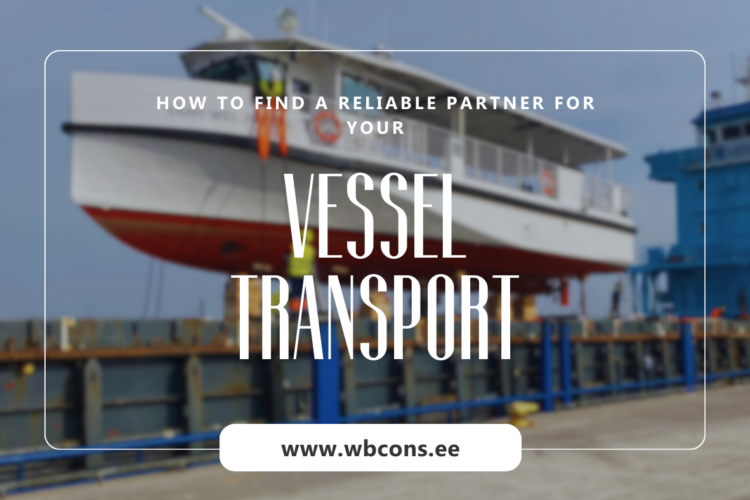Maritime transport is the backbone of international trade and the global economy. More than 80% of international trade is carried by vessels. Part of this percentage is accounted for by project cargo transportation, also known by other terms as breakbulk or heavy lift cargo transport. Vessel transport is also part of the heavy lift project cargo transportation process.
Project cargo is one of the most complex modes of shipping transport, requiring specialized knowledge, experience, and cooperation between several parties. To ensure a successful vessel delivery, a wide network of partners is needed to cover all aspects of freight transport, from professional lifting equipment and crew to comprehensive insurance coverage.
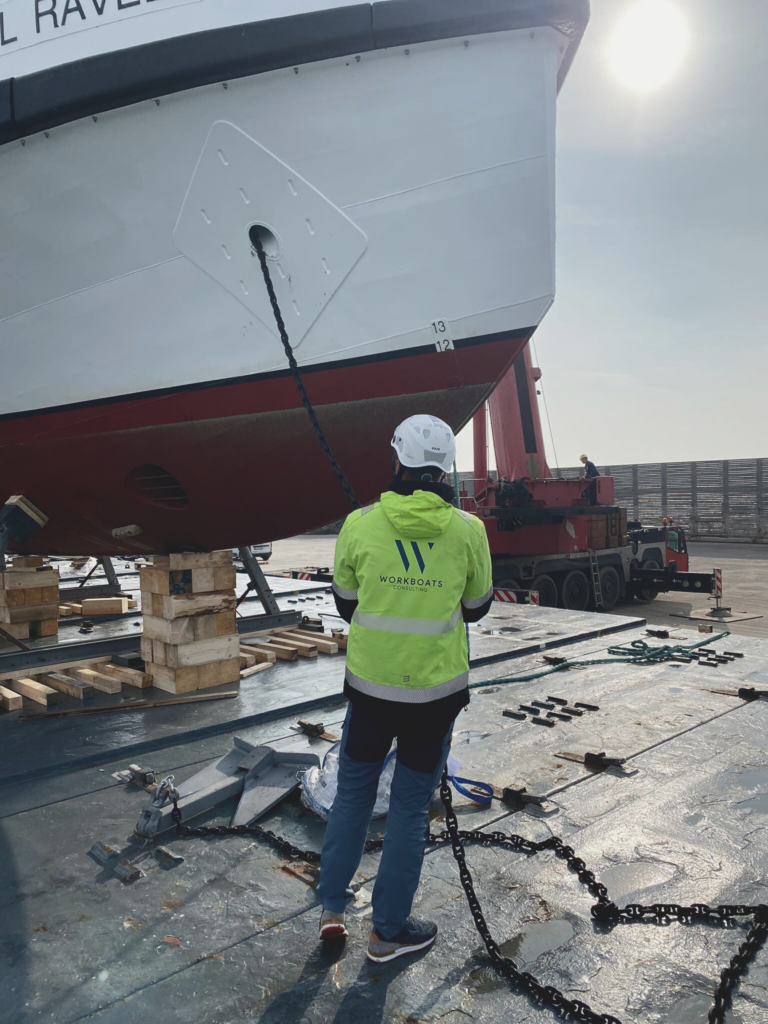
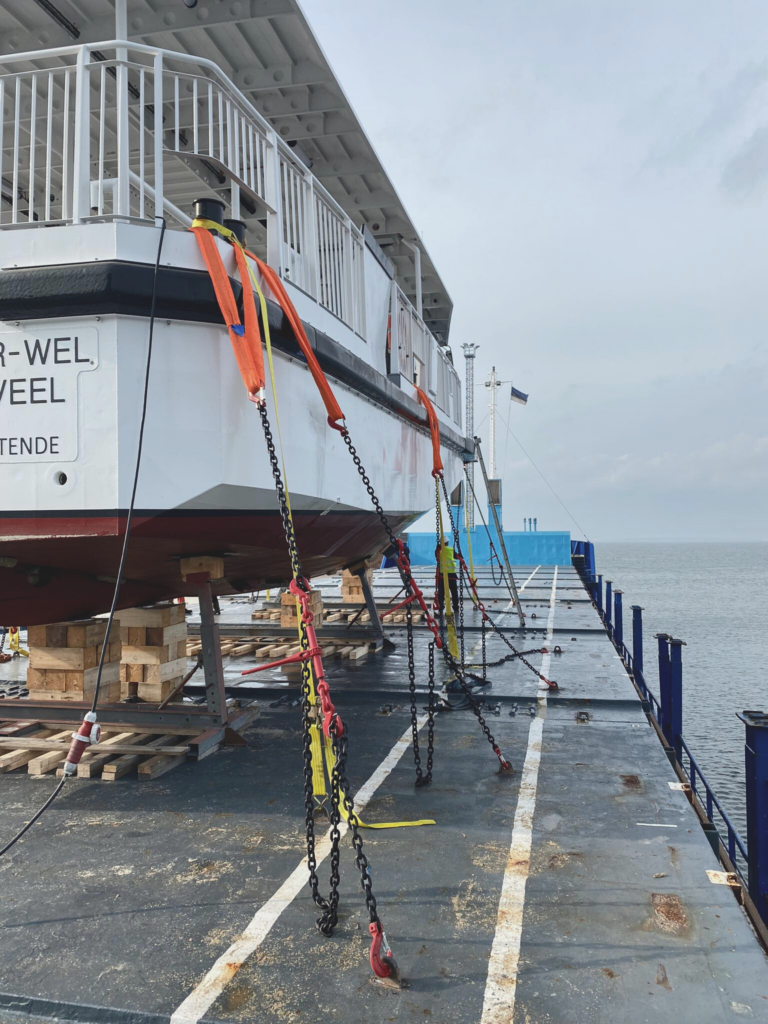
About project cargo quatation
The cost of shipping a vessel is influenced by a large number of specific factors. One of the main factors is the distance and time ratio between the origin and the destination. The longer the vessel is on board another ship, the higher the cost will be. To get a lower price for your vessel transportation, it would be suggested to transport your vessel on board a single ship as the number of lifting operations will influence the cost of the project. Additionally, the dimensions of the vessel, its category (military or civil) declared at customs, and in which port the vessel can be loaded impacts the transportation cost.
As there are many specific factors that determine the price, the price quotation must be accurate and take all aspects and risks into account. Depending on the complexity of the transport and the level of detail of the quotation requested, an initial price offer can be sent to the client within 1-2 days. A quotation based on a detailed analysis can take 1-2 weeks. When providing a quotation, it is necessary to manage the risks and monitor them carefully, trying to find ways to minimize them. Normal risks are related to time and weather. There are also risks related to ports – their special rules, working hours, or the possibility of strikes. Furthermore, the routes, vessel availability in that certain requested timeframe, and ship schedules can also affect the transportation price.
Main challenges in transporting project cargo
The transportation of project cargo presents several challenges that need to be addressed in order to ensure smooth and successful operations. One of the main challenges arises from poor weather conditions and delays caused by port working schedules. These factors require careful planning and coordination to minimize disruptions and mitigate risks.
In addition, there have been instances where larger shipping companies have shown reluctance to transport smaller vessels, particularly military vessels. This is primarily due to the complexities involved in navigating foreign waters and potential restrictions imposed by countries on the entry of military vessels into their territories.
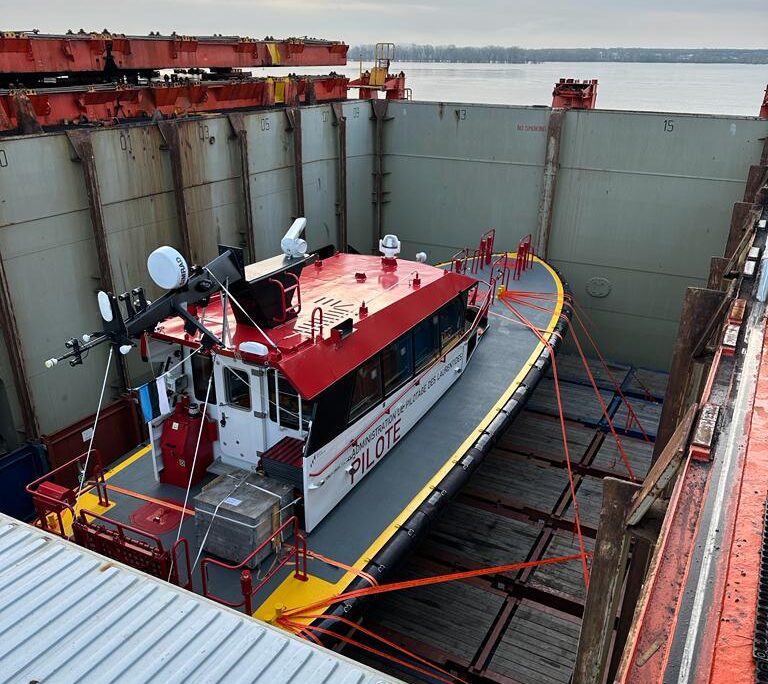
When organizing vessel transport, it is crucial to adhere to the regulations governing both the transportation process and port operations. A detailed understanding of these regulations is essential to avoid any confusion or complications during the transport. Furthermore, customers often have specific contractual requirements and preferences that must be considered and complied with when arranging the transport of their vessels. Effective communication and collaboration with customers are key to meeting their needs and ensuring a successful transportation experience.
How to choose the right partner to transport your vessel
When it comes to selecting the right partner to transport your vessel, it is essential to make a well-informed decision to ensure a smooth and successful operation. Some key steps to follow:
- Seek expertise: Look for a company that specializes in ship transport, as they will have the necessary knowledge and experience to handle all aspects of transportation while complying with laws and regulations.
- Conduct background checks: Perform a thorough background check of potential partners. Understand their previous experience and assess their financial stability. This information will give you a better understanding of their reliability and capability.
- Evaluate quotation process: Be cautious if a potential partner quickly provides a complex quote with specific details. A rushed quote may indicate that risks have not been fully considered and managed. It is important to ensure that the initial quotation accurately reflects the reality of the transport operation.
- Request references: Ask for references from previous projects similar to yours. This will allow you to gather feedback from their past clients and assess the partner’s competence and suitability for your vessel’s transport.
- Consider experience: Take into account the partner’s experience with similar transport operations. Their track record and lessons learned from past projects can provide insights into their competency and reliability.
By following these steps and combining information from background investigations, quotations, and references, you can make an informed decision in selecting a competent and trustworthy partner to transport your vessel to its destination.
Preparation of the vessel for transportation
Once all the necessary documentation is in place, it is possible to move from theory to practice and to start preparing the ship for transport.
It is vital to comprehensively understand the plan developed for the transport of the vessel in order to prepare the ship properly for transport. Depending on the chosen method of transport, certain equipment and parts may need to be removed from the vessel to ensure a successful lashing and loading operation. Identifying and removing any potential obstacles is important for a smooth and safe transport process. In addition, it is necessary to assemble an expert team and secure cooperation agreements with professional partners who will ensure smooth lifts, comprehensive insurance, and of course, find a ship that is suitable for transporting your vessel. As a key aspects, a detailed lashing and loading plan with a timeline of the vessel transportation needs to be developed. Requesting a lifting and/or transport simulation from the shipper made with 3D cargo and logistics planning software is even better.
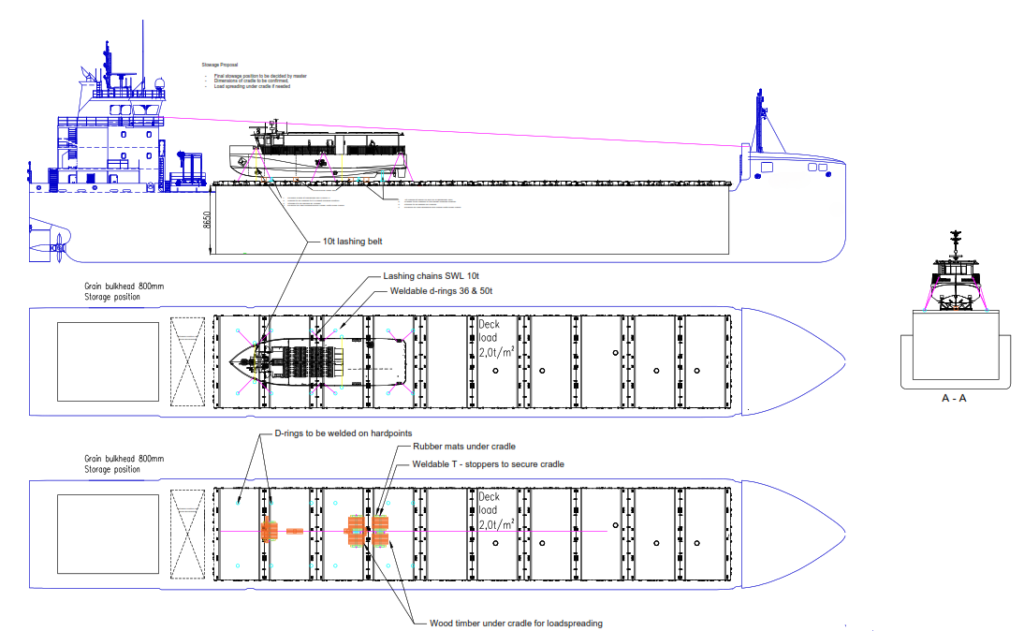
Vessel transport in the future
The future of vessel transport poses challenges due to the occurrence of standardization in the transportation industry. Most goods are transported in standardized containers, which simplifies planning and logistics. However, specialized cargo, such as project cargo shipments, require unique knowledge and experience that are becoming inaccessible in the market due to standardization.
To overcome this challenge, it is crucial to foster strong relationships and maintain contact with various project cargo logistics service providers. These connections will provide flexibility in organizing shipments. By cultivating partnerships and staying connected you can ensure the necessary expertise and adaptability to successfully transport specialized goods in the future.
At Workboats Consulting, we pride ourselves on our dedication to each project and our ability to deliver tailored, comprehensive solutions for vessel transportation. If you need a shipping service and are in search of a strong partner, contact us at hello@wbcons.ee
Discover how Workboats Consulting strategically develops a game plan for efficient vessel transport
